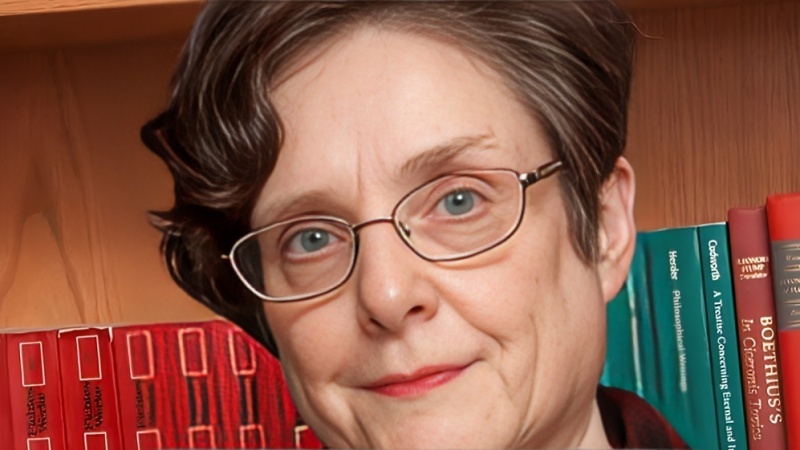Riga Wood: Islamic philosophy, driving force behind western philosophical innovations
-

Riga Wood, a professor at Stanford University
Pars Today - In a dialogue at the University of Tehran, a distinguished professor from Stanford University in the UK discussed the profound influence of the great Iranian sage Avicenna(Ebn-e Sina) and the Muslim philosopher Averroes (Ebn-e Roshd)on philosophical innovations in the Middle Ages.
Riga Wood, a professor at Stanford, recently spoke at the 27th international conference of the Faculty of Theology at the University of Tehran, stating that Western medieval thinkers were heavily indebted to Muslim scholars in their understanding of Aristotle and their philosophical innovations.
According to Pars Today, Wood, a prominent researcher of scholastic philosophy, highlighted the impact of Averroes and Avicenna on the transformation of metaphysical and scientific thought in the 13th century. She also discussed her project to edit the works of Richard Rufus, a 12th-century philosopher, supported by the National Endowment for the Humanities (NEH) in the U.S.
Research challenges for Wood in the U.S.
Wood expressed concern over the cancellation of her research grant by the U.S. Department of Government Efficiency (known as DOGE), influenced by Elon Musk and the policies of the current administration. This move, which led to the dismissal of 80% of NEH staff and a budget review, jeopardized her research.
Wood noted that at 80 years old, she does not need a salary, but her assistants rely on the funding to pay their mortgages. She spoke of resisting these changes but expressed worry about irreparable damage.
The role of Islamic translations in western philosophy
Wood emphasized that the translation of Greek texts into Arabic by Muslim scholars played a crucial role in transferring knowledge to the West. She defended the influence of Islamic philosophy with three arguments: “the chronological order of events,” “the introduction of concepts such as naturalistic interpretations of miracles and the unity of material intellect,” and “the differences in interpretations before and after Averroes.”
She referenced Richard Rufus’s treatises, which became significantly richer in depth and scope after his exposure to Averroes. Wood underscored the profound impact of Muslim thinkers on Western philosophy. Through comparative analysis and historical evidence, Riga Wood demonstrated that Islamic philosophy not only facilitated the transmission of Aristotle’s works but also shaped novel philosophical concepts in the West.
MG/ME


